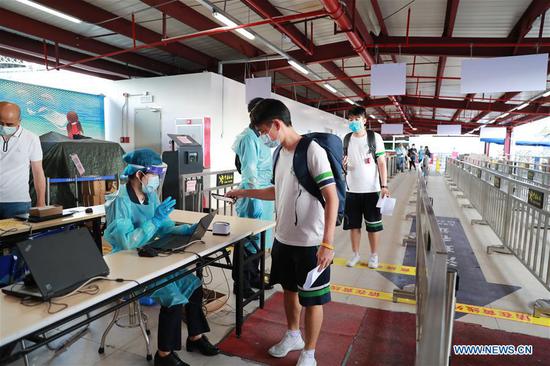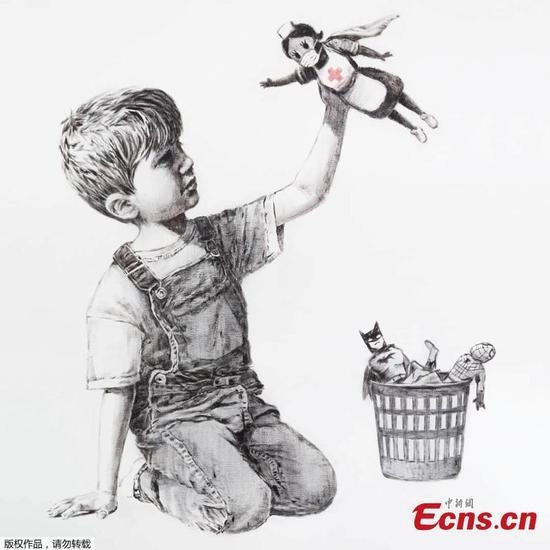China's banking and insurance regulator issued draft rules on commercial bank's online lending business on Saturday, in an effort to satisfy the financing needs of residents and small businesses and reduce financial risks.
"The draft regulations will be good for promoting standardized development of banks' online lending, further expanding this type of business and further encouraging the use of internet technologies by inviting internet platforms to take part in serving the real economy," said Zeng Gang, deputy director-general of the National Institution for Finance and Development.
"By issuing new rules, the regulator has removed uncertainties faced by banks regarding the development of online lending and created conditions for banks to more actively engage in this type of business. The banks that used to have a wait-and-see attitude toward online lending or conservative attitudes toward innovation are likely to increase investment in this respect," Zeng said.
Online lending has become the mainstream trend of development for China's banking sector. Before the novel coronavirus outbreak, banks already issued a large proportion of consumer loans online. Now, an increasing amount of business loans, especially micro and small business loans, are offered online due to the demand for contactless banking spurred by the pandemic, he said.
The regulator put a maximum credit limit on consumer loans without collateral of 200,000 yuan ($28,273) per borrower, and the term of a loan would be no more than one year.
Banks decide limit
However, banks may decide for themselves the upper credit limit of personal loans for production and business operation, as well as the cap on working capital loans, per client. For loans that have a term of more than one year, banks should reassess and re-approve the lines of credit annually.
In this regard, the regulatory requirements are flexible, which will help financial institutions in the banking sector to better serve micro and small enterprises and individuals, and to accelerate banks' business transformation and innovation, Dong Ximiao, chief analyst at the Zhongguancun Internet Finance Institute, said on Sunday.
Under the draft rules, banks should acquire data through legitimate channels, regulate their partners and fully comply with their obligations of information disclosure. These requirements will help reduce potential risks during the development of online lending and protect the interests of financial consumers, Dong said.
The regulator required that banks include online lending in the comprehensive risk management system and establish a set of rules correspondingly. It also highlighted the importance of regulation of banks' partners in the online lending business.
Commercial lenders should create a bankwide unified procedure for giving partners access to the online lending business, clarifying the standards and procedures and managing partnerships through listings of qualified entities. Their partners include financial institutions and nonfinancial institutions, such as small loan companies, third-party payment institutions and information technology companies.
Compliance
Banks should also independently conduct risk assessment and credit approval for the loans they offer and assume primary responsibility for post-lending credit management, according to the China Banking and Insurance Regulatory Commission.
The regulatory commission has made clear that commercial banks are the entities with primary responsibility for regulatory compliance. Banks and their partners are required to sign agreements that clarify what the partners may and may not do. In this way, the entire process of online lending will be included in the core regulatory system, said Cheng Rui, deputy director of the institute of financial research at Ping An Puhui, a unit of Ping An Insurance (Group) Co of China, in a post on the WeChat social media platform.
The regulator also raised a complete suite of requirements on the risk management system of banks' online lending. This will effectively keep control over potential risks amid the development and innovation of such business, Cheng said.


















































